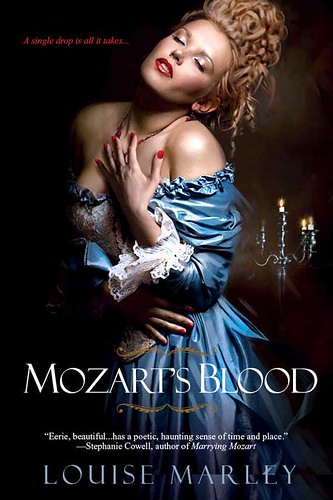Kelly and I are on an Alaska cruise with my mother’s family. I am barely online, except when I’m checking in on my students, but I thought I’d shoot you all a quick update.
All told, we are five couples and one teenaged boy. Everyone but us being from the U.S., it made sense to converge on and embark from Seattle. We therefore spent Monday catching up with a friend who flew out from Waterloo to housesit for us, a lovely, brilliant, seriously-I-am-so-in-awe-of-her! brain on very shapely legs, who had a hand in designing the university’s Knowledge Integration degree. We then slept for two hours, got up before dawn, breakfasted, finished packing and caught a 6:00 a.m. train to Seattle.
If you have limited funds for a vacation and are just looking to get out of town, there are worse thing to do than take Amtrak to Seattle for a day. It was inexpensive and easy. The train’s route runs along the coast, offering better viewing than many an Amtrak route. The salt flats were dotted with herons and other shorebirds, and we caught a blurry glimpse of a river otter and its two babies, humping their way up onto the shore and into the brush. I dozed a little, rewatched the Doctor Who Runaway Bride special on my iPod, gaped at the scenery and whee! Four painless hours later we were in King Station at the heart of Seattle, down in the part of town which evokes fond memories of Clarion West.
We cabbed off to the terminal and got onto the ship with minimal fuss. We lunched, walked the sundecks, marvelled at how high up we were, scoped out the hot tubs and the good book-reading spots. Then we had dinner with the family and headed off to a naturalist’s lecture, all on two hours sleep.
The dregs of the evening were taken up in trying to find a couple of healthy snacks before bed. (We have taken to keeping a hoard of fruit in our stateroom; it’s not always out where you can get at it. Overall, this cruising thing seems more oriented to people who eat three huge meals than to people who eat small and snack between.)
Anyway, we slept like the dead, had brekkie the next morning, went back to the room and slept some more. There has been a stunning amount of reading and napping.
I had imagined sitting out in a hot tub with the ocean view all around, but I had told myself not to get my hopes up. There are 1998 other passengers, after all. But that first afternoon, that’s exactly what happened: me, Kelly, and a cousin had the hot tub on the stern of the ship all to ourselves for well over an hour. We only got out because I figured we were at risk of burning. (We both found a few barely rosy patches of skin, as a matter of fact; my timing was excellent!)
Wednesday was billed as a “Fun Day at Sea!” as we chugged north. Thursday we sailed into Tracy’s Arm Fjord and goggled at an amazing glacier, a sheer river of ice colored the most fantastic and improbable blues I’ve ever seen, ringed by coastal mountains and iceberg-studded waters. We had many whale sightings at a distance, and have had some good food and some bad food. Also stunning—in the hammer meets cranium way–is the décor, which is Disneylandish in its intensity. The elevator shaft (this is, after all, a twelve-storey building) has some open lifts and the mouldings and lights on the thing are beyond glittery. I have pictures; you’ll be stunned. There’s a Versailles lounge, a glittering, sarcophagus-encrusted Pharaoh’s Palace, a Tiki-themed Jungle, a mini-golf course, and multiple bar/dance floors. Also a casino, which is no-go territory because it’s a smoking area.
Our chosen reading area is next to one of the lounges; there are facing sets of comfy chairs by the windows on the 2nd floor, with screens separating each. The screens have Gaugin prints on them, so one is surrounded by artistic nudity. I’ve finished reading Quarrel with the King there, and have started rereading Tana French’s In the Woods. It’s all very weird and decadent, and I am enjoying the downtime, the multiple naps, and the family time very much indeed.
Except for the icebergs and my genetic relations, I haven’t found many things to shoot so far. But today we get to get off the ship—we will be in Skagway! I expect to come back to our cabin with many exciting shots.





